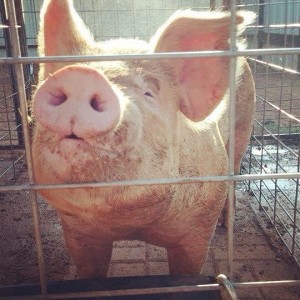On Tuesday, Missouri voters will determine whether to amend the state’s constitution to include a constitutional right to farm. This proposed amendment has created significant debate among agricultural producers, organizations, politicians, companies, and interest groups.
Missouri’s Proposed Amendment
The proposed amendment would amend the Missouri Constitution to “ensure that the right of Missouri citizens to engage in agricultural production and ranching practices shall not be infringed.” Specifically, if passed Article I of the Missouri Constitution would include the following language: “That agriculture which provides food, energy, health benefits, and security is the foundation and stabilizing force of Missouri’s economy. To protect this vital sector of Missouri’s economy, the right of farmers and ranchers to engage in farming and ranching practices shall be forever guaranteed in this state, subject to duly authorized powers, if any, conferred by article VI of the Constitution of Missouri.” [Read full Joint Resolution here.]
Supporters of the amendment believe that the right to farm needs to be clearly defined in order to protect agriculture in the state, while opponents say that the right to farm exists without it being written into the Constitution and that the vague wording of the bill seems extremely broad. Supporters of the bill point to laws passed in other states the restrict farming and ranching practices, such as bans on gestation crates, tail docking, and veal calf stalls and argue that Missouri farmers and ranchers need protection from these types of measures, frequently championed by animal rights groups. Opponents argue that the proposed language will allow agribusinesses to avoid laws necessary to protect the public and the environment. This voter’s guide outlines the amendment language and arguments from both sides.
Constitutional Amendments in Other States
Missouri is not alone in considering a constitutional right to farm, although the language of the proposed Missouri Amendment appears to be broader than that in other states.
North Dakota voters approved a constitutional amendment in 2012 by a 2 to 1 margin, providing “[t]he right of farmers and ranchers to engage in modern farming and ranching practices shall be forever guaranteed in this state. No law shall be enacted which abridges the right of farmers and ranchers to employ agricultural technology, modern livestock production and ranching practices.” Representative Wes Belter explained that the law was designed to protect agriculture from groups seeking to attack safe, sound farming practices. He believes that the ND constitutional provision would prevent the type of laws passed in other states prohibiting the use of GMO seeds, gestation crates, and laying cages.
A similar provision will be on the November ballot in Oklahoma seeking to amend the state’s constitution to provide as follows, “To protect agriculture as a vital sector of Oklahoma’s economy, which provides food, energy, health benefits, and security and is the foundation and stabilizing force of Oklahoma’s economy, the rights of farmers and ranchers to engage in farming and ranching practices shall be forever guaranteed in this state. The Legislature shall pass no law which unreasonably abridges the right of farmers and ranchers to employ or refuse to employ agricultural technology and livestock production and ranching practices. Nothing in this section shall be constructed to modify any provision of common law statutes relating to trespass, eminent domain, existing or previously enacted laws or rules, or any other property rights.” [View ballot language here.]
Distinction from Right to Farm Laws
Although all 50 states have right to farm statutes, the proposed constitutional amendments are much broader. Generally, a right to farm statute (passed by the state’s legislature) provides an affirmative defense for an agricultural operation when sued based upon claims of nuisance and, in some states, trespass. The constitutional amendments in Missouri, North Dakota, and Oklahoma, however, are much broader. Instead of offering an affirmative defense to a narrow category of claims, these amendments guarantee farmers and ranchers the right to engage in farming and ranching practices.












